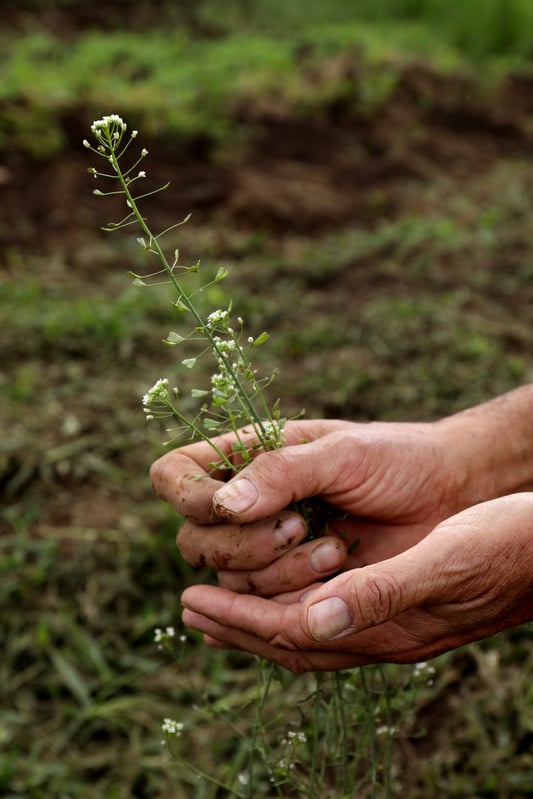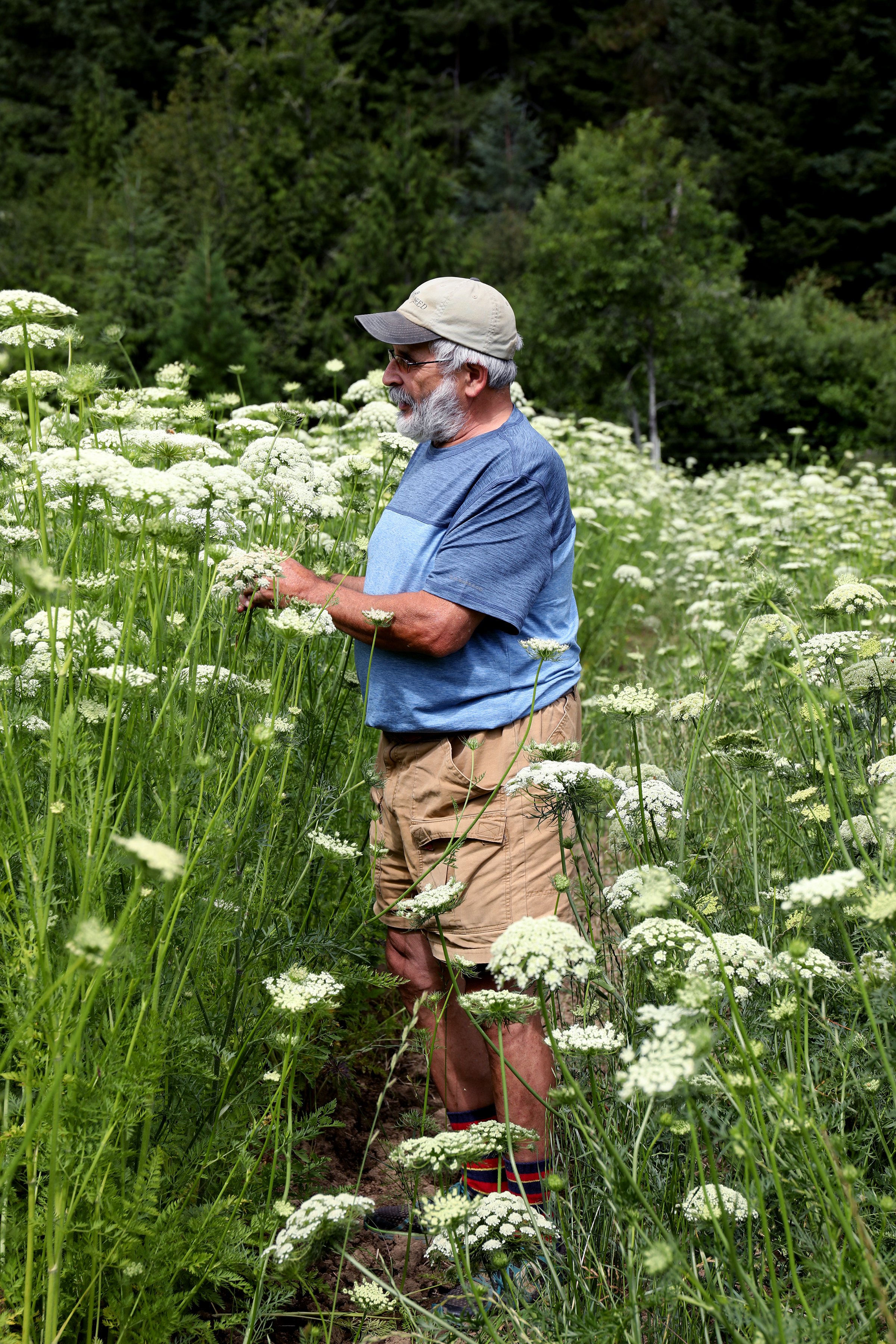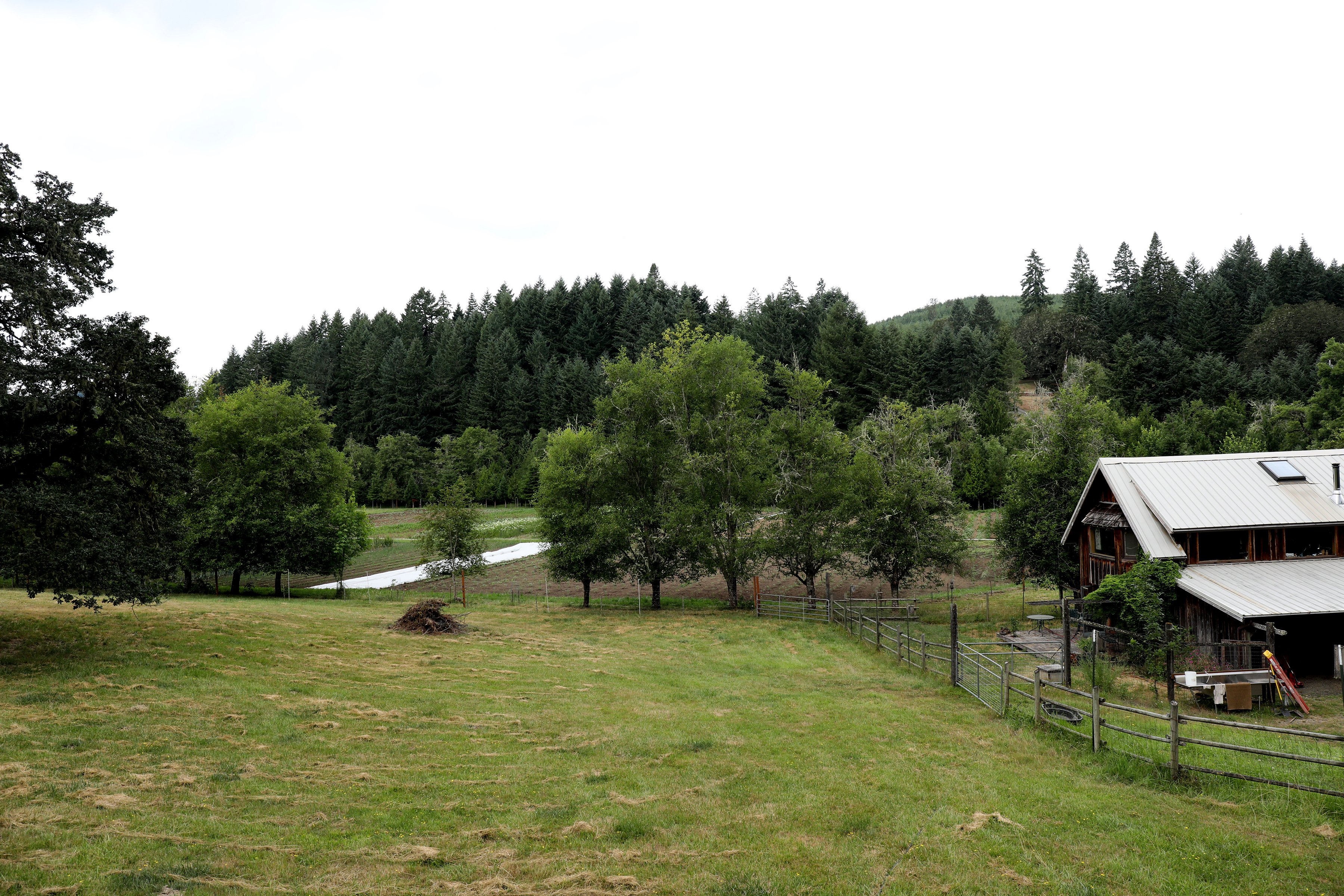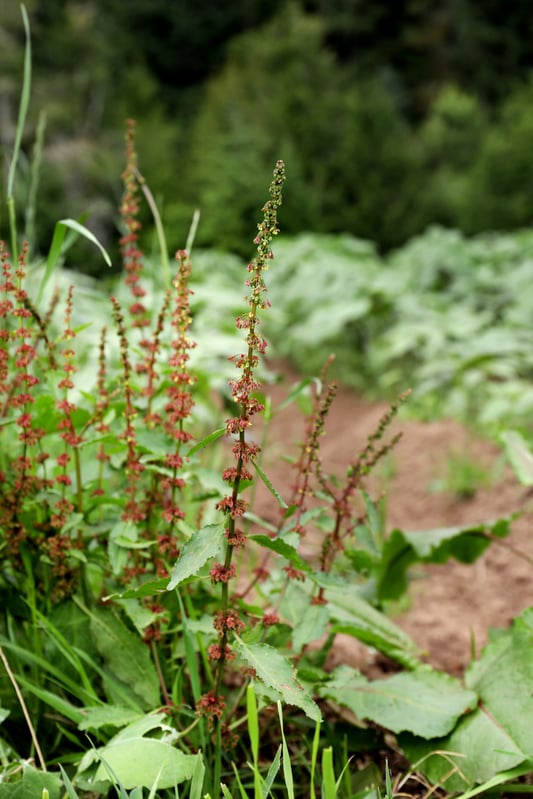We visit the small and secluded valley where Mountain Rose Herbs farm partner Alan grows and collects the organic ingredients for our fresh herbal tinctures (like the shepherd's purse pictured above).
It’s a perfectly Pacific Northwest day as we follow farm partner Alan into his recently tilled fields. A moderate drizzle is pierced by sunshine that warms the ground, so that moisture rises upward from the wet soil at about the same rate as it falls from the mottled sky. Damp spring has luxuriated longer than usual this year, but Alan doesn’t complain. Our famously wet winter and spring months turn persistently sunny come summer, so growers here are generally grateful for the free irrigation while they can get it.
We’ve asked Alan to show us where he grows some of the organic herbs that will one day travel from his fields to our Eugene, Oregon extract-making facility down the road.
Mountain Rose Herbs has been handcrafting fresh tinctures in-house since 2017, our first major foray into the world beyond dried botanicals, and one that presented some exciting opportunities for growing locally. The quantities required to meet our extract needs are much smaller than for our dried botanicals, empowering us to forge relationships with small-scale growers in our own backyard. Working with farms of this proximity and scale has allowed us to produce extracts from ingredients at their peak freshness and quality while enriching our local community—and minimizing our carbon footprint.
Alan says he will show us the shepherd’s purse, dandelion, and wild lettuce that will soon be ready for harvest. As we walk along his farm, we scan ahead for neat rows of lush leaves or blooming flowers. But all we see are recently seeded or fallow fields, a puzzling scene for our farm liaison, Jana. Alan finally stops and points to a clump of wild overgrowth on the edge of a seemingly barren plot.
Alan examines some of the carrot plants he cultivates for seed, a feat possible thanks to the unique, sheltered topography of his land that protects his crops from wild cross-pollination.
“Here’s some shepherd’s purse that’s about ready,” he says, pointing. “And the dandelions are up now, so we’ll be digging roots from those for a few months as well. The wild lettuce grows on the edge of that next field, where it’s a bit shadier.”
Jana asks, “You mean, you just harvest these herbs wherever they pop up around the farm?”
“That’s right, we just take what nature gives us,” Alan says. “This land is certified organic, so when we’re working with the annuals we’ve planted, we’re able to set aside any of these useful ‘weeds’ as an organic crop of their own. Basically, we’re able to wildharvest on our own farm.”
A short but steep climb up the sloping side of Alan's valley provides the perfect vantage point to survey his productive fields and surrounding pastureland.
The simple strategy is quite brilliant—Alan lets nothing go to waste, taking advantage of ready-made permaculture. The black walnut hulls, devil’s club root, yellow dock, and yerba santa leaf, all ingredients in our handcrafted herbal extracts, are also collected by Alan wherever they naturally grow wild in his fields.
Not all of Alan’s crops are so independent, however. We duck inside a humid greenhouse lined with shelves holding rows of emerald green sprouts—the makings of his annual crop of holy basil, the not-so-secret ingredient in one of our most popular herbal extracts. Alan and his small crew germinate and grow their basil under cover so that it can be transplanted into the field as soon as soil temperatures allow (usually the first week in June). With help from the farm’s homemade compost-tea-infused irrigation and the added nutrient boost of bokashi, a Japanese-style fertilizer rich in nourishing biochar, these aromatic plants will be in pale purple flower by early August.
Amidst the rows of one of his cultivated fields, Alan points outs a patch of yellow dock nearing flower. Later in the season, the roots of these plants will be harvested for our fresh tinctures.
It’s at that time when our nearby extract-making facility will receive a fresh batch of Alan’s holy basil. Extractor extraordinaire, Shay, will lead our crew in the time-sensitive work of capturing all that goodness while the plants are at their prime. Our first round of organoleptic testing (using our physical senses) is conducted as soon as the herbs come through our doors, and plants that pass muster are immediately processed for extraction. After a trip through our grinder, herbal material is transferred into glass jars, covered with organic alcohol, and left to infuse for about two months (with daily shakes by our crew) before being pressed and strained into their final form. After several more rounds of thorough testing in our Quality Lab, these handcrafted plant potions are packaged into single or combination tinctures ready to support your wellness goals by the dropperful.
We could never make such high-quality extracts without the hard work and tender care from Alan and other local growers.
“This has never been an easy life, and I’ve sacrificed a lot,” Alan says. “But I love it more than anything else I could be doing, and that’s made it all worth it.”
WANT TO KNOW MORE ABOUT OUR LOCAL FARMERS?
Hear Why Our Pacific Northwest Farmers Choose to Grow Organic!
You might also enjoy:














